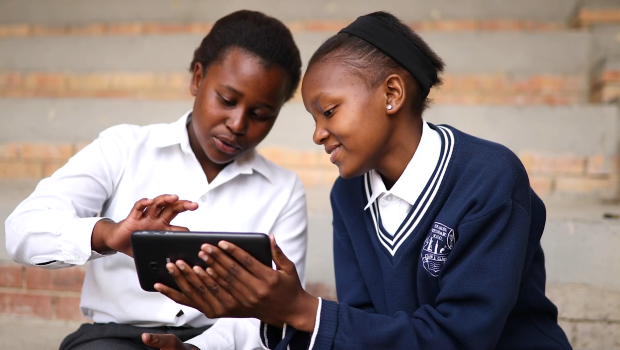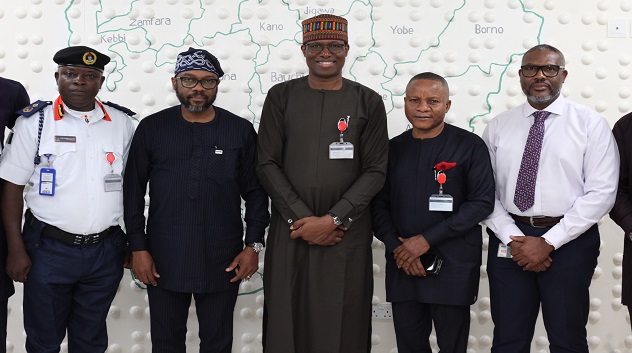Telecom
95% of the World Now Covered by Mobile Broadband Networks – GSMA Research

Ensuring people are able to use mobile internet, rather than focusing purely on network coverage, is the key to driving digital inclusion for 3.2 billion people worldwide, according to statistics released by the GSMA yesterday.

The organisation’s annual State of Mobile Internet Connectivity Report shows that 95% of the global population now lives in areas served by mobile broadband connectivity, and that enabled by that coverage footprint, 55% of the world’s population is now connected to mobile internet. Providing coverage to the remaining 5% (the ‘coverage gap’) remains an important challenge.
However, the bigger issue is the 3.2 billion people, equivalent to 40% of the world’s population, who are covered by a mobile broadband network but face barriers that prevent them from getting online (the ‘usage gap’). These include:
– A lack of literacy and digital skills
– Affordability (particularly handset affordability)
– Access to relevant content and services
– Safety and security concerns and access
The impacts of these challenges have far-reaching consequences, especially in low- and middle-income countries (LMICs) where mobile is the primary – and in many cases only – form of internet access.
94% of the world’s ‘unconnected’ population – who are more likely to be poor, living in rural areas and women – live in LMICs.
Lack of internet access holds them back from playing an active role in an increasingly online world, making them less able to cope with the continuing economic and social disruptions caused by the COVID-19 pandemic, climate change, rising energy prices and the cost-of-living crisis.
These barriers also prevent them from being able to access critical information and services such as healthcare, education, e-commerce, financial services and income-generating opportunities.
GSMA Director General, Mats Granryd said “More than 55% of people globally are now benefitting from the transformational power of mobile internet connectivity.
“Mobile operators worldwide have now extended mobile coverage to 95% of the global population, and continue investing every day to increase that footprint. We should celebrate that achievement, but we shouldn’t let it blind us to the even bigger challenge.
“It’s time to make real strides on the journey to reach the 3.2 billion people who are not yet using mobile internet despite living within the footprint of mobile broadband networks.
“We call on governments and organisations worldwide to work alongside the mobile industry and make digital inclusion a genuine priority. Removing barriers to mobile internet adoption will boost economic recovery, improve social mobility and gender equality, and transform the lives of millions worldwide.”
Important trends
Whilst the report highlighted the importance of increased focus on addressing the ‘usage gap’ it also revealed a number of important trends:
- Use of mobile internet is still growing, and driving digital inclusion. By the end of 2021, 4.3 billion people were using mobile internet or 55% of the world’s population, up from 43% in 2017
- Almost 300 million people came online in the past year. Most of the people who started using mobile internet in 2021 came from LMICs where 94% of the unconnected population live. As a result, for the first time half of the population LMICs is now using mobile internet.
- Globally, the coverage gap reduced substantially over the last 7 years. The percentage of people outside the reach of mobile broadband networks fell from 19% in 2015 to 5% at the end of 2021. However, there is no room for complacency: 400 million people worldwide still do not live in an area covered by a mobile broadband network, and progress has slowed since 2018.
While important progress has been achieved in increasing internet adoption and usage, the report, which was funded by the UK Foreign, Commonwealth and Development Office (FCDO) and the Swedish International Development Cooperation Agency (Sida) via the GSMA Mobile for Development Foundation, demonstrates that growth has been unequal and there is a growing digital divide between and within countries.
It concludes that strong collective effort is needed to close the digital divide. This requires informed, targeted action by all stakeholders, including mobile operators, policymakers, international partners and the broader private sector to address the needs of the unconnected and the barriers they face to accessing and using the internet.
Addressing the mobile internet usage gap will be a focus of this year’s Mobile World Congress Africa event in Kigali, Rwanda, which starts next week.
Telecom
IHS Nigeria Hosts Telecom Industry Stakeholders to Discuss Protection of Critical National Infrastructure in Lagos State

IHS Nigeria, part of the IHS Holding Limited (NYSE: IHS) (“IHS Towers”) group, one of the largest independent owners, operators, and developers of shared communications infrastructure in the world by tower count, recently hosted a high-level meeting of stakeholders in the telecommunications industry including regulators and law enforcement agencies, at its corporate headquarters in Lagos.

The meeting was organized to develop a multi-stakeholder action plan for the protection of Critical National Information Infrastructure (CNII) assets in Lagos state.
Recognizing the importance of communications infrastructure as the backbone of national security, economic growth and social cohesion, the stakeholders at the meeting convened under the umbrella of the Association of Licensed Telecoms Operators of Nigeria (ALTON) agreed on the urgent need for collaborative solutions to ensure the protection of these vital assets.
The meeting was attended by senior representatives from the telecommunications stakeholder groups and regulatory bodies including the Nigerian Communications Commission (NCC), the Association of Licensed Telecoms Operators of Nigeria (ALTON), Association of Telecommunications Companies of Nigeria (ATCON) and the Lagos State Infrastructure Maintenance and Regulatory Agency (LASIMRA).
Also in attendance were representatives from the Mobile Network Operators (MNOs), and InfraCos as well as the Nigeria Security and Civil Defence Corps (NSCDC), the security agency tasked with the protection of Critical National Infrastructure across the country.
Following extensive deliberations, the stakeholders resolved to establish a working group dedicated to addressing key industry challenges, including the vandalization and theft of telecommunications infrastructure, arbitrary shutdown of base stations, fiber cuts due to road construction and the denial of access by unauthorized individuals by leveraging technology for real-time monitoring and protection, strengthening security measures around telecommunication sites and collaborating more with the security and regulatory agencies to mitigate these challenges.
The stakeholders underscored the need to prioritize deterrence and prevention of these incidents and highlighted the importance of public awareness campaigns to sensitize the host communities and public of the need to protect telecommunications infrastructure in their localities.
Dapo Otunla, Senior Vice President & Chief Corporate Services Officer of IHS Nigeria, commented, “The protection of Critical National Information Infrastructure (CNII) has been a critical concern for all industry stakeholders.
“We are experiencing daily losses of assets, which significantly impact on the quality of service delivered to subscribers. Addressing these issues is paramount to sustaining Nigeria’s digital ecosystem and meeting regulatory expectations.”
Telecom
MTN Champs Continental Relays: Over 1,000 Athletes Gear Up for Lagos Showcase

Over 1ooo athletes are already set to participate in the upcoming MTN Champs Continental Relays, taking place between April 9 and April 12 at the UNILAG and Yabatech Sports complexes. Organisers anticipate even more registrations before the April 2 deadline.

MTN Champs is Nigeria’s largest grassroots sports competition, a collaboration between MTN Nigeria and Making of Champs (MoC), providing a platform for young athletes to showcase their talents and potentially represent Nigeria on the global stage.
Osaze Ebueku, Senior Manager, Go-to-Market at MTN Nigeria at the opening ceremony of the MTN Champs Classics events in Benin had emphasised the long-term vision behind MTN Champs: “We’re building future Olympians for Nigeria. MTN Champs is about more than competition. It’s about changing lives.”
The continental relays mark the second leg of the MTN Champs Season 3, following the Classics competition in Benin, which saw 4,371 event entries from 2,056 athletes.
As of March 24, the Lagos leg had already recorded 2,821 event entries across different age categories, highlighting the growing enthusiasm around the competition.
The registered athletes are spread across four categories, with 174 in the Cadet (U-14) category, 388 in Youth (U-17), 270 in Junior (U-20), and 279 in the Senior category.
To ensure smooth participation, organisers have outlined important guidelines. Athletes in the Cadet, Youth, and Junior categories must submit a signed Parental Consent Form, while all registered schools and athletes must collect their competition bibs by April 8 at the competition venue to confirm their participation and secure their place on the start list.
Sports enthusiasts can look forward to an electrifying showcase of emerging talent, as young athletes seize the opportunity to prove their skills on a professional stage.
Telecom
Again, Labour Fumes, Threatens Shutdown of Telcos over Non-Implementation of 15 Percent Tariff Reduction

Nigeria Labour Congress (NLC) is threatening to shut down operations of telecommunications companies over their refusal to comment on the 15 percent reduction in telecom tariffs.

Recall that that organised labour, through the NLC, forced the federal government and NCC to reduce the telecommunications tariff hike from 50% to 35% after threatening to shut down telecom operations and the NCC in response to what it saw as exploitative economic policies amidst excruciating suffering, hardship, and deepening poverty.
The government had previously formed a 10-member committee, consisting of five government and NLC representatives, to deliberate on the thorny topic of tariff hikes within two weeks and report back before making a final decision on the new telecom tariff structure.
Consequently, on Friday, February 21, 2025, the committee, at a meeting conducted in the office of the National Security Adviser (NSA) that lasted nearly three hours, decided on a 15 per cent tariff cut.
According to reports, in accordance with the conditions of the agreement, an official communiqué announcing the tariff reduction was scheduled to be released on Saturday, February 22.
According to Chronicle,iIt was said that the meeting began at 4:00 p.m. and concluded around 7:00 p.m., during which NLC representatives insisted that the tariff hike be withdrawn.
According to sources, after significant pressure from NLC representatives in the 10-man committee, the government and NCC gave up and agreed on the 15% decrease, which the government or NCC should have announced the next day.
However, at the time of this report, no such announcement has been made.
Leaders of the labour union are not taking the government’s failure to announce or implement the 15% tariff decrease lightly, suspecting that they have been duped.
The Labour leaders have therefore resolved to directly confront the NCC and telecommunications operators next week.
Though it has been reported that the date for the start of the industrial action against the NCC and telecom providers has been set and mobilisation is underway, the information is being closely guarded.
One of the leaders of the NLC stated that “We have received directives to commence mobilisation since last week. In fact, the date for the commencement of industrial action against the NCC and telecommunication operators’ offices across the country has been fixed. We have been warned not to disclose the date because the plan is to take all concerned by surprise. We are not giving any notice because we thought we had resolved this matter over a month ago. It is as if we have been scammed. Therefore, we have decided to confront the matter head-on.”
On February 12, the NLC expressed outrage over telecommunications companies’ tariff hikes, despite an earlier agreement with the Federal Government and the NCC.
According to the Labour union, “If the telecommunications companies fail to revert to the old tariff by the end of February 2025, a total shutdown of their operations nationwide will commence on March 1, 2025.”
To demonstrate its seriousness, the NLC declared that, as a first step in resisting the arbitrary tariff hike, it directed that workers and other willing citizens boycott the services of MTN, AIRTEL, and GLO daily between 11:00 a.m. and 2:00 p.m. until the end.
On Tuesday, February 11, NLC leaders issued a communiqué at the conclusion of their Central Working Committee (CWC) meeting in Lokoja, Kogi State, urging workers and citizens to suspend data purchases from telecommunications companies, which have also become one of their most effective tools for exploiting Nigerian citizens.
The communiqué, signed by Joe Ajaero and Emma Ugboaja, Congress’ President and General Secretary, respectively, instructed NLC State Councils and industrial union affiliates to quickly sensitise and mobilise their members and the general public in their jurisdictions.

 News3 days ago
News3 days agoCourt Throws Out Falana’s Fraud Case against Ekeh, Zinox Boss and Others

 E-Financial3 days ago
E-Financial3 days agoHeritage Bank Depositors Seek National Assembly’s Help to Recover Trapped Funds

 Telecom2 days ago
Telecom2 days agoAgain, Labour Fumes, Threatens Shutdown of Telcos over Non-Implementation of 15 Percent Tariff Reduction

 Telecom3 days ago
Telecom3 days agoNokia Unwraps 5G Gateway for Home Internet

 E-Business2 days ago
E-Business2 days agoQNET Disassociates From Fraudulent Academy in Abuja, Supports EFCC Arrest

 News3 days ago
News3 days agoFG to Halt Solar Panel Imports, Pushes for Local Manufacturing

 News3 days ago
News3 days agoFG Receives N1Bn Grant from Airtel Africa to Boost 3MTT Programme

 News2 days ago
News2 days agoNNPC Ready to Go to Capital Market for IPO- CFIO



























